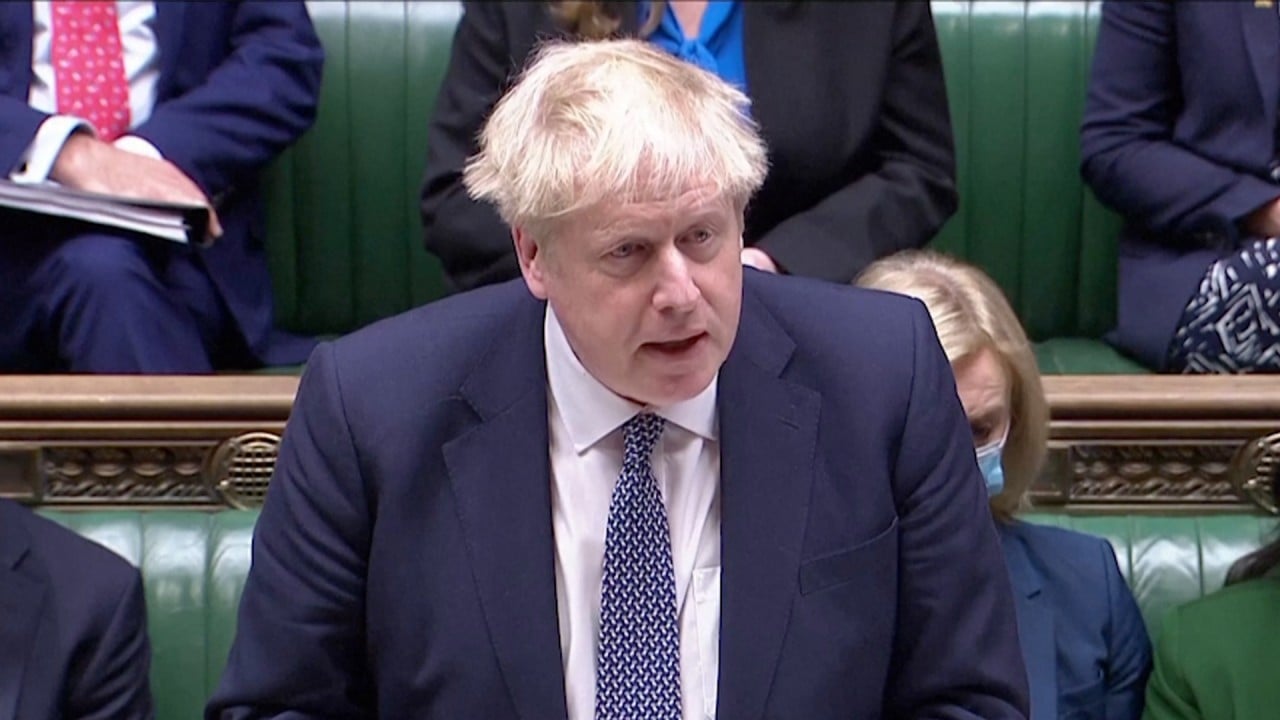
British Conservative MP says he will go to police with government blackmail claims
- William Wragg, who accuses the government of blackmailing opponents of Prime Minister Boris Johnson, said he will take his allegations to the police
- Wragg said legislators calling for a challenge to Johnson’s leadership have faced ‘intimidation’ that amounted to ‘blackmail’
A British politician who accuses the government of blackmailing opponents of Prime Minister Boris Johnson says he will take his allegations to the police.
William Wragg, an MP from the governing Conservative party, said legislators calling for a challenge to Johnson’s leadership have faced “intimidation” that amounted to “blackmail”.
Wragg alleged that rebellious MPs were threatened with a loss of public funding for their constituencies and had embarrassing stories about them leaked to the press.

Johnson has said he has “seen no evidence” to support those claims. The prime minister is facing a political crisis over allegations that he and staff held lockdown-flouting parties while Britain was under coronavirus restrictions.
The Daily Telegraph newspaper reported on Saturday that Wragg said he would meet police early next week to discuss his claims of bullying and intimidation.
“I stand by what I have said. No amount of gaslighting will change that,” the newspaper quoted Wragg as saying.
London’s Metropolitan Police force said that “should a criminal offence be reported … it would be considered”.
UK government accused of ‘blackmail’ to keep Boris Johnson in power
A handful of Conservative MPs, including Wragg, have called for Johnson to resign. Others are awaiting a report by Sue Gray, a senior civil servant appointed to investigate claims that government staff held late-night gatherings, “bring your own booze” parties and “wine time Fridays” while Britain was under coronavirus restrictions in 2020 and 2021.
Gray’s findings are expected to be published next week.
Johnson has apologised for attending a party in the garden of his Downing Street offices in May 2020 but said he had considered it a work gathering that fell within the social distancing rules in place at the time.
If Gray casts doubt on his explanation, more Conservative MPs may be emboldened to call for a no-confidence vote in Johnson that result in his removal from leadership. Removal would be a stunning downfall for a politician who has shrugged off previous scandals over offensive comments, falsehoods and financial irregularities.
Wragg’s allegations have cast a light on the shadowy world of whips – politicians tasked with maintaining party discipline and ensuring their colleagues back the government in key votes.
They use subtle and not-so-subtle pressure, and have been accused of sometimes crossing a line and using threats to get members of parliament to fall into line.
Christian Wakeford, an MP who defected from the Conservatives to the opposition Labour Party on Wednesday, said he was told he would not get a new school for the district he represents “if I did not vote in one particular way.”

Other Conservative politicians said they were never threatened by whips.
Labour’s Chris Bryant, who heads the House of Commons standards committee, said claims such as Wakeford’s were reminiscent of US-style “pork barrel politics”, and should not become part of the British system.
“We are meant to operate as MPs without fear or favour,” Bryant said. “The allocation of taxpayer funding to constituencies should be according to need, not according to the need to keep the prime minister in his job.”


